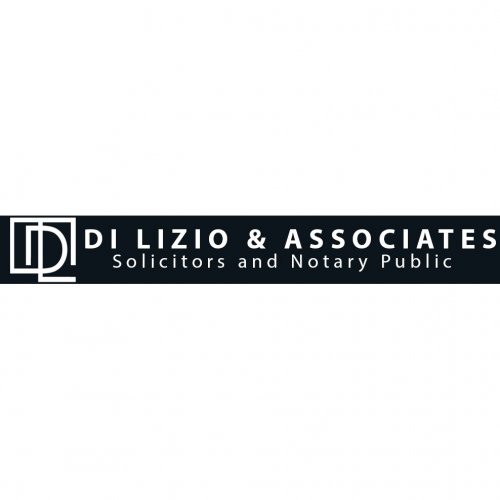Best Sanctions & Export Controls Lawyers in Hurstville
Share your needs with us, get contacted by law firms.
Free. Takes 2 min.
List of the best lawyers in Hurstville, Australia
About Sanctions & Export Controls Law in Hurstville, Australia
Sanctions and export controls are important aspects of Australian law designed to regulate trade, protect national security, and uphold international obligations. In Hurstville, a diverse and vibrant community within the Sydney metropolitan area, these laws impact businesses and individuals engaged in international trade, technology transfer, and travel. Australian sanctions are primarily guided by federal legislation and international agreements, with enforcement carried out by national bodies. The rules set limits on the export, supply, or transfer of certain goods, services, and technologies, and may restrict dealings with specified countries, entities, or individuals. Understanding these rules is crucial for anyone conducting business with foreign parties or exporting goods from Hurstville.
Why You May Need a Lawyer
Many people assume that sanctions and export control laws only affect large corporations or international traders. In reality, a range of situations can trigger legal needs in this area. You may need a lawyer if you are:
- Exporting products, technology, or software overseas
- Doing business with foreign entities or individuals
- Engaged in cross-border investments or partnerships
- Involved in sectors like information technology, chemicals, or pharmaceuticals
- Seeking to understand or comply with embargoes or trade prohibitions
- Facing government investigations or regulatory action
- Needing to apply for export permits or licenses
- Dealing with goods that may have dual-use (civilian and military applications)
- Uncertain if your products or services are subject to controls
- Responding to a legal warning or seeking to avoid costly breaches and penalties
Local Laws Overview
Sanctions and export control laws in Hurstville are governed by both federal and international frameworks, but several key local considerations apply:
- Federal Laws: The main instruments are the Autonomous Sanctions Act 2011, the Customs Act 1901, the Defence Trade Controls Act 2012, and associated regulations. These laws restrict activities with certain countries and regulate the export of controlled goods, technology, and military items.
- Enforcement: Australian Border Force, the Department of Foreign Affairs and Trade (DFAT), and the Australian Federal Police (AFP) are the main enforcement agencies.
- Hurstville Business Impact: Hurstville’s diverse business community may include importers, exporters, freight forwarders, IT firms, and individuals from various backgrounds, all of whom need to ensure compliance regardless of business size or frequency of transactions.
- Local Council: While sanctions and export controls are not imposed at the local council level, the Hurstville community, as part of the Georges River Council area, is affected by federal trade policies and may engage with state and local government for business support.
- International Students and Migrants: Due to Hurstville’s multicultural population, residents may need advice on how sanctions affect personal remittances, travel, or interactions with family and businesses overseas.
Frequently Asked Questions
What are sanctions and export controls?
Sanctions are legal measures set by a country to restrict trade or activity with certain countries, entities, or individuals for foreign policy or security reasons. Export controls are regulations limiting the movement of certain goods, software, and technology overseas to protect national security and uphold international commitments.
Do sanctions laws apply to individuals as well as businesses?
Yes, both individuals and businesses can be subject to sanctions and export controls. This includes employees, company directors, and sole traders operating in or from Hurstville.
How does the government enforce these rules?
Enforcement is carried out by agencies such as Australian Border Force, the Department of Foreign Affairs and Trade (DFAT), and the Australian Federal Police. They monitor trade activities and investigate any suspected breaches of the laws.
Are there specific countries I cannot do business with?
Yes, the Australian government maintains a list of countries, entities, and individuals subject to autonomous and United Nations sanctions. Dealings with these parties may be restricted or require a special permit.
What happens if I breach sanctions or export controls laws?
Breaching sanctions or export controls can result in criminal charges, heavy fines, and even imprisonment. Mistakes, even unintentional ones, can have serious financial and reputational consequences.
Do I need a license or permit to export goods or technology from Hurstville?
Many goods, software, and technologies require special export permits or licenses, especially those with potential military or dual-use. It is essential to check with DFAT or seek legal advice before exporting.
Are there any exemptions to sanctions or export restrictions?
Some exemptions may apply, such as for humanitarian aid or specific projects approved by the government. However, these must be clearly documented and often require official government consent.
How can I check if my customer or business partner is subject to sanctions?
You can search the Australian government's consolidated sanctions list or consult with legal professionals to conduct risk assessments and background checks on your customers and partners.
How often do the laws change?
Sanctions and export control regulations are often updated in response to global events and international obligations. It is important to stay informed about the latest changes relevant to your activities.
Where can I get more information or report a concern?
Government agencies such as DFAT and Australian Border Force provide resources and hotlines for information, compliance assistance, and reporting suspected breaches.
Additional Resources
The following Australian resources and organizations can provide guidance and support for those with questions about sanctions and export controls:
- Department of Foreign Affairs and Trade (DFAT): The primary body for sanctions laws, including updates, permit applications, and country lists.
- Australian Border Force: For questions about import and export procedures at the border.
- Australian Trade and Investment Commission (Austrade): Business support for export planning and compliance.
- Georges River Council Business Resources: Information for local businesses in the Hurstville area.
- Australian Federal Police: For reporting criminal breaches of sanctions or export laws.
- Legal Aid NSW: For basic legal assistance or referrals where eligible.
- Local business associations and chambers of commerce: May also offer networking, advice, and compliance workshops.
Next Steps
If you believe you may be affected by sanctions or export controls, or if you are planning to conduct international business or export goods from Hurstville, the following steps are recommended:
- Identify all your business or personal activities that may involve foreign countries, entities, or controlled goods.
- Review current government regulations or seek up-to-date information from official sources.
- Contact a legal professional specializing in sanctions and export controls to discuss your situation in detail.
- Prepare all documentation regarding your business, products, partners, and destinations.
- Implement clear compliance procedures within your business or organisation.
- If you receive any official notification or letter regarding sanctions compliance, seek legal advice immediately and do not ignore it.
- Stay informed by subscribing to regulatory updates and attending local compliance workshops when available.
Lawzana helps you find the best lawyers and law firms in Hurstville through a curated and pre-screened list of qualified legal professionals. Our platform offers rankings and detailed profiles of attorneys and law firms, allowing you to compare based on practice areas, including Sanctions & Export Controls, experience, and client feedback.
Each profile includes a description of the firm's areas of practice, client reviews, team members and partners, year of establishment, spoken languages, office locations, contact information, social media presence, and any published articles or resources. Most firms on our platform speak English and are experienced in both local and international legal matters.
Get a quote from top-rated law firms in Hurstville, Australia — quickly, securely, and without unnecessary hassle.
Disclaimer:
The information provided on this page is for general informational purposes only and does not constitute legal advice. While we strive to ensure the accuracy and relevance of the content, legal information may change over time, and interpretations of the law can vary. You should always consult with a qualified legal professional for advice specific to your situation.
We disclaim all liability for actions taken or not taken based on the content of this page. If you believe any information is incorrect or outdated, please contact us, and we will review and update it where appropriate.









